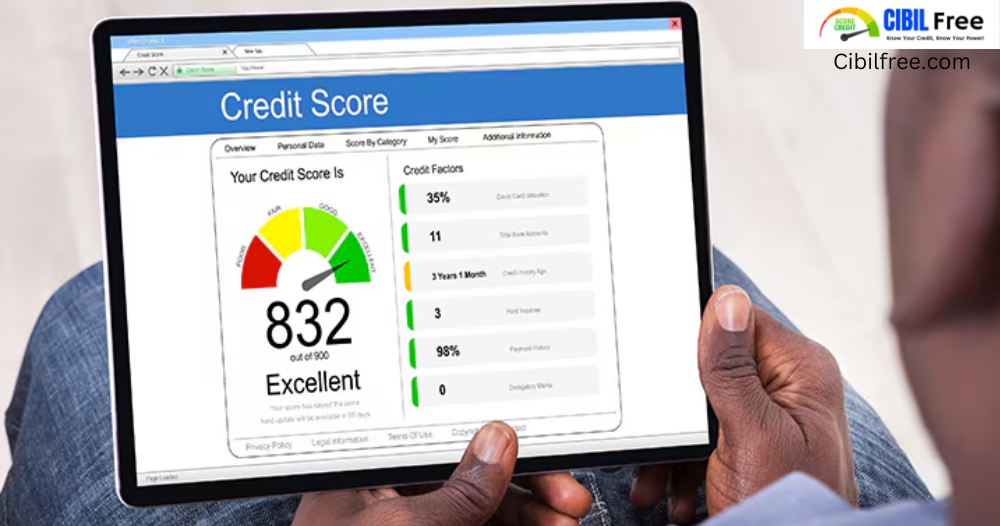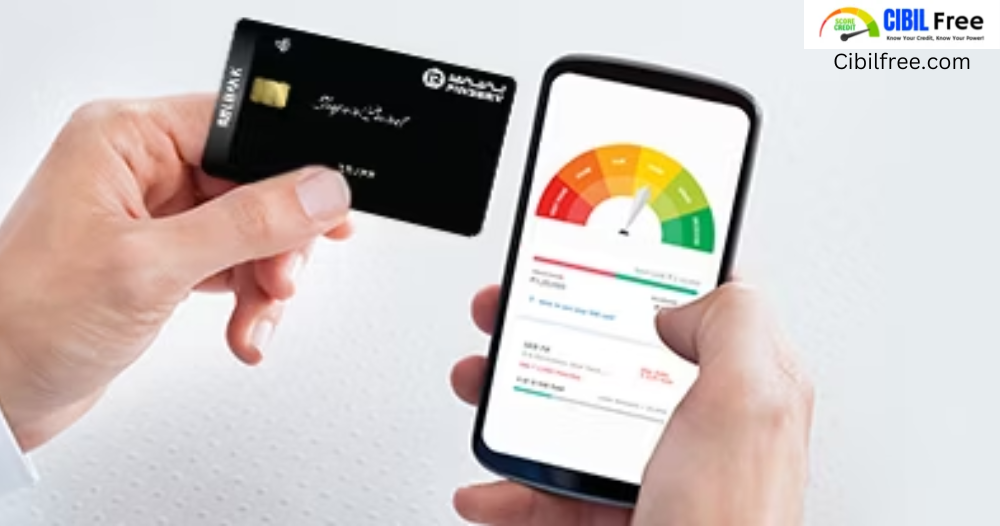Le arn about CIBIL MSME Rank, its importance, how it works, and how MSMEs can improve their creditworthiness to secure better loans and grow their business.
Table of Contents
Introduction
In India, the micro, small, and medium enterprises (MSMEs) sector is a crucial driver of economic growth, employment, and innovation. However, like any other business, MSMEs often face challenges when it comes to accessing credit. Banks and financial institutions tend to be cautious when extending loans to smaller businesses due to the higher risk associated with lending to them. To help these businesses improve their chances of getting access to credit, the CIBIL MSME Rank was introduced.
In this blog, we will dive deep into the CIBIL MSMERank, its significance, how it works, and how MSMEs can use it to boost their creditworthiness.
What is the CIBIL MSME Rank?

The CIBIL MSME Rank (CMR) is a unique credit score model that assesses the creditworthiness of MSMEs. Developed by TransUnion CIBIL (one of India’s leading credit bureaus), it offers a specialized credit rating specifically for small and medium-sized enterprises. It is an essential tool used by lenders to evaluate an MSME’s ability to repay loans or credit facilities.
The CIBIL MSMERank helps financial institutions make informed decisions when considering lending to MSMEs by providing a numerical value between 1 and 10. A higher rank indicates a lower risk of default, while a lower rank indicates a higher likelihood of default. This makes it a crucial tool for MSMEs looking to secure financing.
Importance of CIBIL MSME Rank

1. Easier Access to Credit
One of the primary reasons for MSMEs to care about their CIBIL MSME Rank is that it significantly influences their ability to obtain loans. Financial institutions, including banks, use this rank to gauge the financial health and repayment capability of a business. A good CIBIL MSME Rank increases the chances of securing a loan, as lenders view the business as less risky.
2. Better Loan Terms
A higher MSME rank doesn’t just help in securing loans—it also helps in negotiating better terms. Lenders are more likely to offer favorable interest rates, flexible repayment schedules, and even larger loan amounts to businesses with a good CIBIL MSMERank. This can help reduce the financial burden on the business.
3. Improved Reputation in the Market
A good MSME rank is also beneficial for the business’s reputation. When lenders and financial institutions see that a business has a strong credit history and financial management practices, it enhances the company’s credibility. This can also help in building relationships with other potential partners, suppliers, or customers.
4. Helps in Business Expansion
Having access to credit can help MSMEs scale their operations, invest in technology, increase inventory, or hire employees. The CIBIL MSMERank acts as a gateway for businesses to access capital, which in turn drives growth and enables them to compete in the market.
How Does CIBIL MSME Rank Work?
The CIBIL MSME Rank is a credit score that is assigned based on various parameters that reflect the creditworthiness of the MSME. Some of the key factors that influence the CIBIL MSMERank include:
1. Credit History
Just like the personal CIBIL score for individuals, the MSME Rank takes into account the credit history of the business. It includes the timeliness of loan repayments, credit usage, and any defaults or delayed payments in the past. Businesses with a history of making timely payments and not defaulting on their debts typically have a higher CIBIL MSMERank.
2. Financial Statements
Financial statements such as balance sheets, profit and loss accounts, and cash flow statements provide lenders with insight into the financial health of the business. A business that consistently generates revenue, maintains a healthy profit margin, and has strong cash flow is likely to have a better rank.
3. Debt-to-Equity Ratio
The debt-to-equity ratio (D/E ratio) indicates the balance between the capital invested by the owners and borrowed funds. A lower D/E ratio generally indicates that a business is less reliant on debt, which is a positive sign for lenders.
4. Business Age and Size
The maturity of the business is another factor in determining its creditworthiness. Older businesses with a proven track record of profitability and sustainability generally have higher CIBIL MSMERanks. Similarly, businesses that have a larger market share and are established in their respective industries tend to score better.
5. Industry Performance
The performance of the industry in which the business operates can also influence the MSME Rank. For instance, industries that are cyclical or highly sensitive to economic changes may pose a higher risk to lenders, impacting the MSME Rank.
6. Payment Behavior
One of the most significant indicators of creditworthiness is how well the business handles its payment obligations. Regular payments on loans, credit facilities, and vendor payments build trust and improve the CIBIL MSMERank, while defaults or delays can significantly lower it.
7. Credit Utilization
A business that efficiently manages its credit utilization (i.e., not maxing out its credit limits) is seen as a responsible borrower. Low credit utilization rates can indicate that the business is in control of its finances and is less likely to default on its obligations.
Understanding CIBIL MSME Rank Scoring

The CIBIL MSME Rank is represented by a numerical value between 1 and 10, where:
- 1 – 3: Indicates high creditworthiness, and the business is considered low-risk.
- 4 – 6: Suggests moderate creditworthiness and that the business has a reasonable risk of default.
- 7 – 10: Indicates poor creditworthiness, with a higher likelihood of default, and the business may face difficulty obtaining credit.
A higher score generally translates into better access to loans, favorable interest rates, and other financial benefits. On the other hand, a lower score can make it difficult for MSMEs to get approved for loans or may result in higher interest rates.
How Can MSMEs Improve Their CIBIL MSME Rank?

Improving the CIBIL MSME Rank is not an overnight process, but businesses can follow several best practices to ensure a steady improvement over time. Here are some tips that can help MSMEs improve their rank:
1. Timely Payment of Loans and Bills
Making timely payments is one of the most effective ways to improve your MSME rank. Pay attention to due dates and ensure that all outstanding debts are cleared on time. This will help establish a positive payment history and improve the rank over time.
2. Manage Debt Effectively
Maintaining a manageable level of debt is crucial for improving the MSME Rank. Avoid taking on excessive loans that you cannot repay comfortably. It’s also important to ensure that the business’s debt-to-equity ratio remains within a reasonable range.
3. Maintain Accurate Financial Records
Having accurate and up-to-date financial records can help lenders better understand your business’s financial health. Ensure that your balance sheets, profit and loss statements, and cash flow reports are clear and reflect a stable and sustainable business model.
4. Diversify Sources of Revenue
A business that depends on a single source of income is at a higher risk of financial instability. Diversifying revenue streams can make the business more resilient to economic shocks, improving its creditworthiness.
5. Monitor Credit Usage
It’s important not to max out the credit lines you have. A high credit utilization rate can negatively affect your CIBIL MSMERank. Try to keep the utilization below 50% of your total available credit.
6. Establish Relationships with Lenders
Building a strong relationship with your bank or lending institution can go a long way. Having regular communication with your lenders can help them better understand your business and its potential for growth.
Conclusion
The CIBIL MSME Rank is an essential tool for small and medium-sized businesses seeking financial support. By assessing the creditworthiness of an MSME, it enables financial institutions to make informed lending decisions, which can be the difference between securing a loan or being denied. A good MSME rank not only helps businesses access credit but also provides them with the opportunity to negotiate better terms, build credibility, and expand their operations.
For MSMEs, maintaining a strong CIBIL MSMERank is essential for ensuring smooth financial operations. By following sound financial practices, managing debt responsibly, and ensuring timely payments, businesses can improve their CIBIL MSMERank and unlock the financial resources they need to grow and thrive.
So, if you’re an MSME owner, it’s time to focus on improving your rank—it’s one of the best steps you can take to secure your business’s future in today’s competitive market.
FAQs about CIBIL MSME Rank
What is CIBIL MSME Rank?
CIBIL MSME Rank is a credit score model that evaluates the creditworthiness of Micro, Small, and Medium Enterprises (MSMEs) to help lenders make informed decisions about loan approval.
How is CIBIL MSME Rank calculated?
CIBIL MSMERank is calculated based on several factors, including credit history, financial statements, debt-to-equity ratio, payment behavior, and industry performance.
What is the range of CIBIL MSMERank?
The CIBIL MSME Rank ranges from 1 to 10, with 1-3 indicating low risk (high creditworthiness) and 7-10 indicating higher risk (lower creditworthiness).
Why is CIBIL MSME Rank important?
It helps businesses secure loans by assessing their creditworthiness. A higher rank increases the chances of getting better loan terms, while a lower rank may result in higher interest rates or loan rejection.
What factors affect CIBIL MSME Rank?
Factors include timely loan repayments, financial health (e.g., cash flow, profit), debt management, payment behavior, credit utilization, and business age.
How can MSMEs check their CIBIL MSME Rank?
MSMEs can check their CIBIL MSME Rank by registering on the CIBIL website or through partner financial institutions offering MSME credit services.
How can a business improve its CIBIL MSME Rank?
Improving the rank involves making timely loan repayments, maintaining a manageable debt-to-equity ratio, diversifying revenue streams, and keeping accurate financial records.
What is a good CIBIL MSME Rank?
A rank between 1 and 3 is considered good, as it indicates low risk and high creditworthiness, making it easier for MSMEs to secure loans at favorable terms.
What happens if a business has a low CIBIL MSME Rank?
A low rank (7-10) suggests high risk, which may result in loan rejection, higher interest rates, and stricter repayment terms from lenders.
Does CIBIL MSME Rank affect interest rates on loans?
Yes, a higher CIBIL MSME Rank can lead to better interest rates, while a lower rank may result in higher rates due to perceived higher risk.
Is CIBIL MSME Rank the only factor lenders consider?
No, while the CIBIL MSME Rank is important, lenders also consider other factors such as business financials, industry outlook, and management experience.
Can MSMEs with a poor CIBIL MSME Rank still get loans?
Yes, but they may face higher interest rates or be required to provide additional collateral. It’s also possible that loan amounts may be smaller.
How often is CIBIL MSME Rank updated?
CIBIL MSME Rank is updated periodically, typically based on the business’s credit activity and payment behavior. Regular updates may improve or affect the rank.
Can an MSME’s CIBIL Rank improve over time?
Yes, by consistently paying off debts, managing finances well, and maintaining a low debt-to-equity ratio, MSMEs can improve their rank over time.
Is CIBIL MSME Rank different from an individual’s CIBIL Score?
Yes, the CIBIL MSME Rank is specifically designed for businesses, whereas the individual CIBIL score assesses personal creditworthiness. Both are important for securing credit but for different types of borrowers.
by cibilfree